 W
WAdolf Friedrich Albrecht Heinrich, Duke of Mecklenburg, was a German explorer in Africa, a colonial politician, the elected duke of the United Baltic Duchy from 5 November to 28 November 1918, and the first president of the National Olympic Committee of West Germany (1949–1951).
 W
WPrince Albert of Saxe-Altenburg was a German prince of the ducal house of Saxe-Altenburg.
 W
WGunter d'Alquen was chief editor of the weekly Das Schwarze Korps, the official newspaper of the Schutzstaffel (SS), and commander of the SS-Standarte Kurt Eggers.
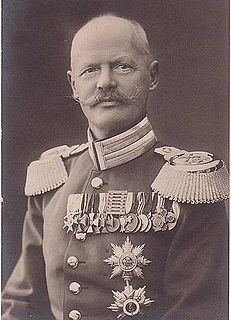 W
WPrince Arnulf of Bavaria was a member of the Bavarian Royal House of Wittelsbach and a General of Infantry.
 W
WGheorghe Avramescu was a Romanian Lieutenant General during World War II. In 1945, he was arrested by the NKVD on the Slovakian front and died in custody the next day.
 W
WEduard Georg Gustav von Below was a German General of the Infantry who notably served in World War I.
 W
WNikolaus Heinrich Ferdinand Herbert, Prince of Bismarck was a German politician, who served as Foreign Secretary from 1886 to 1890. His political career was closely tied to that of his father, Otto von Bismarck, and he left office a few days after his father's dismissal. He succeeded his father as the 2nd Prince of Bismarck in 1898. He was born in Berlin and died in Friedrichsruh.
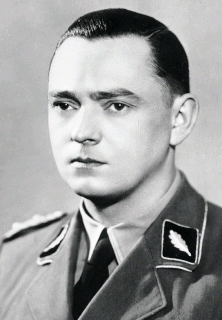 W
WHorst Böhme was a German SS functionary during the Nazi era. He served in the SD, the intelligence service of the SS, and was a leading perpetrator of the Holocaust.
 W
WMartin Friedrich Rudolf von Delbrück was a Prussian statesman at the time of Otto von Bismarck.
 W
WPrince Frederick of Hohenzollern-Sigmaringen was a member of the House of Hohenzollern-Sigmaringen and a Prussian General of the Cavalry. Frederick was the fifth child and youngest son of Charles Anthony, Prince of Hohenzollern and his wife Princess Josephine of Baden.
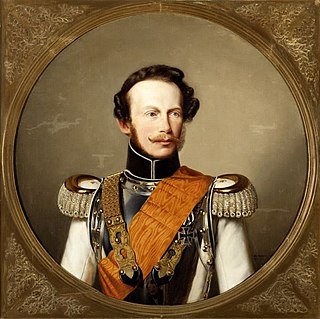 W
WPrince Frederick William Louis of Prussia was a Prussian prince and military officer.
 W
WGeorg Fuchs was a Prussian General of the Infantry who notably served during World War I.
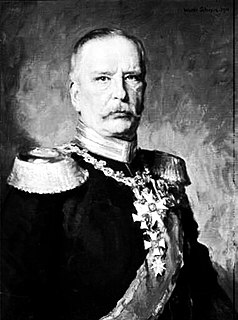 W
WHeinrich Wilhelm Martin von Goßler was a Prussian General of the Infantry and Minister of War. He was a Knight of Justice (Rechtsritter) of the Order of Saint John.
 W
WHermann George Bernard of Saxe-Weimar-Eisenach was Prince of Saxe-Weimar-Eisenach and Duke of Saxony, and a general in the Württemberger army.
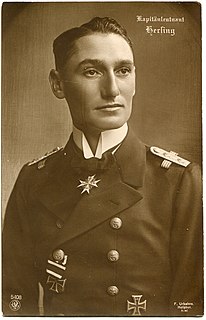 W
WOtto Hersing was a German naval officer who served as U-boat commander in the Kaiserliche Marine and the k.u.k. Kriegsmarine during World War I.
 W
WDietrich Graf (Count) von Hülsen-Haeseler was an infantry general of the German Empire.
 W
WArvi Kalsta was a Finnish Jaeger captain, the founder of the nazi Finnish People's Organisation and a businessman. In the 1930s, the Finnish Nazis who belonged to his supporters were called “Kalstaites”.
 W
WLouise Kessenikh-Graphemes was a female officer, the participant of war with Napoleon 1812-1815 Prussian Uhlan Sergeant major. From 1817 she lived in St. Petersburg and was engaged in private business activities.
 W
WOscar Ljungström (1868–1943) was a Swedish archivist, officer, and author.
 W
WMaximilian, Margrave of Baden, also known as Max von Baden, was a German prince, general, and politician. He was heir presumptive to the throne of the Grand Duchy of Baden, and in October and November 1918 briefly served as Chancellor of the German Empire. He sued for peace on Germany's behalf at the end of World War I based on U.S. President Woodrow Wilson's Fourteen Points, which included immediately transforming the government into a parliamentary system, by handing over the title of chancellor to SPD Chairman Friedrich Ebert and unilaterally proclaiming the abdication of Emperor Wilhelm II. Both events took place on 9 November 1918, the beginning of the Weimar Republic.
 W
WPrince Moritz of Saxe-Altenburg, was a member of the ducal house of Saxe-Altenburg. He was the father of Ernst II, Duke of Saxe-Altenburg.
 W
WDuke Paul Frederick of Mecklenburg was a member of the House of Mecklenburg-Schwerin and general of the Mecklenburg cavalry.
 W
WPhilipp, Prince of Eulenburg and Hertefeld, Count of Sandels was a diplomat and composer of Imperial Germany who achieved considerable influence as the closest friend of Wilhelm II. He was the central member of the so-called Liebenberg Circle, a group of artistically minded German aristocrats within Wilhelm's entourage. Eulenburg played an important role in the rise of Bernhard von Bülow, but fell from power in 1907 due to the Harden–Eulenburg affair when he was accused of homosexuality.
 W
WPrince Friedrich Wilhelm of Prussia was a member of the House of Hohenzollern, great-grandson of Frederick William III of Prussia.
 W
WMyron Tarnavsky (Ukrainian: Мирон Тарнавський, was a supreme commander of the Ukrainian Galician Army, the military of the West Ukrainian People's Republic.
 W
WVictor I, Duke of Ratibor, Prince of Corvey, Prince of Hohenlohe-Schillingsfürst was a member of House of Hohenlohe-Schillingsfürst and later Duke of the Silesian duchy of Ratibor and Prince of Corvey.
 W
WVictor II, Duke of Ratibor, Prince of Corvey, Prince of Hohenlohe-Schillingsfürst was a member of House of Hohenlohe-Schillingsfürst and Duke of the Silesian duchy of Ratibor.
 W
WEduard Ernst Friedrich Hannibal Vogel von Fal(c)kenstein was a Prussian General der Infanterie.
 W
WWilhelm Waetzoldt was a German art historian, professor of art history in Halle, Geheimer Oberregierungsrat in the Prussian Ministry of Culture and from 1927 to 1933 general director of the Berlin State Museums.
 W
WPeter Friedrich Ludwig von Weltzien was a Prussian lieutenant general.
 W
WArchduke Wilhelm Franz of Austria, later Wilhelm Franz von Habsburg-Lothringen, also known as Vasyl Vyshyvani, was an Austrian archduke, a colonel of the Ukrainian Sich Riflemen, and a poet, a member of the House of Habsburg-Lorraine.
 W
WPrince Friedrich Wilhelm Karl of Prussia was the son of Frederick William II of Prussia and Frederika Louisa of Hesse-Darmstadt.
 W
WWilliam I was King of Württemberg from 30 October 1816 until his death.
 W
WWilliam II was the last King of Württemberg. He ruled from 6 October 1891 until the dissolution of the kingdom on 30 November 1918. He was also the last German ruler to abdicate in the wake of the November Revolution of 1918.
 W
WDuke Eugen of Württemberg was a German prince and a staff officer of Württemberg.